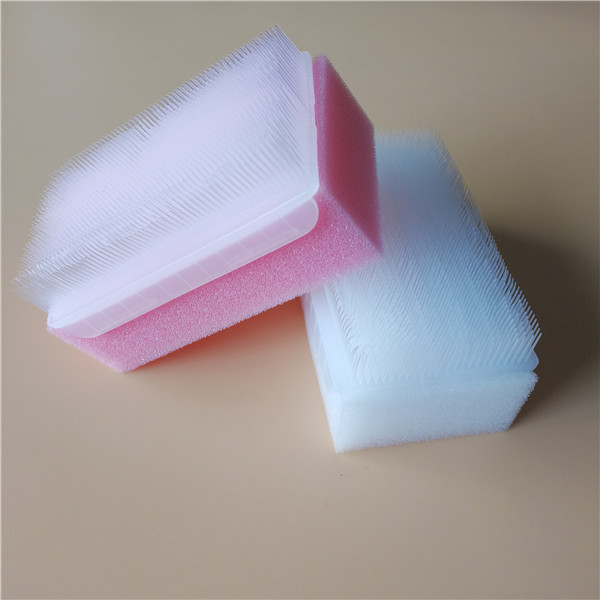The importance of washing hands with a surgical brush
Hands are the easiest way to spread germs, a small fraction of which are harmless, non-pathogenic microbes that normally live on human skin. Other types of bacteria found in the air and surfaces, such as viruses and bacteria, are responsible for many diseases, ranging from more common and less serious illnesses such as the common cold to more severe ones. Some bacteria can live on surfaces for hours and can enter your eyes, nose and mouth through your hands.
Therefore, keeping hands clean is essential to prevent infection, both in social life and in healthcare settings such as hospitals, clinics and dental offices.
5 Critical Moments for Handwashing
In healthcare facilities, hand washing is mandatory at 5 critical moments as defined by the World Health Organization
1. Before touching a patient
You must wash your hands before touching a sick person, even with standard touches like approaching them or shaking hands
2. Before aseptic manipulation
Use surgical brushes if possible, and wash hands before performing any sterile procedures, such as teeth cleaning where skin is not intact.
3. After exposure to body fluids or bioaerosols
You must clean your hands (after removing gloves) immediately after possible exposure to bodily fluids or bioaerosols, such as after touching mucous membranes or incomplete skin or after cleaning your teeth.
4. After contact with a patient
After touching or near a patient
5. After exposure to the patient's surroundings
After touching any object or furniture near the patient, even without direct contact with the patient.
Guidelines for Using Dry Surgical Brushes
There are different types of surgical cleaning products on the market. The most common surgical scrubs are liquid antiseptics or foaming soaps used in combination with water and a dry surgical scrub brush.
If you use a dry surgical scrub brush:
Wet hands and forearms up to the elbows;
If there is no protective film, avoid touching the dispenser stem and use your elbow to dispense antibacterial soap;
Perform a surgical scrub and wash your hands and forearms under running water for a few minutes;
Rinse your hands first, then your forearms, keeping your hands above your forearms to prevent water from leaking onto your hands;
Carefully clean the space under the nail with a file;
Brush your nails and cuticles, paying close attention to the area between your fingers using a dry surgical brush soaked in antiseptic solution;
Finally, place brushes and files in designated bins, rinse hands first, then forearms (keep hands over forearms);
Dry hands and forearms with a sterile cloth, starting with the fingers (one at a time), then palm/back, wrist, and finally forearm down to the elbow.
MUNKFOAM manufacturing epdm open cell foam, Oral swab, Sponge Brush, Medical Foam, Sponge Sticks, packing foam, Oral Care Swabs, Medical Brushes etc. All of them with high quality and best price. Welcome!
